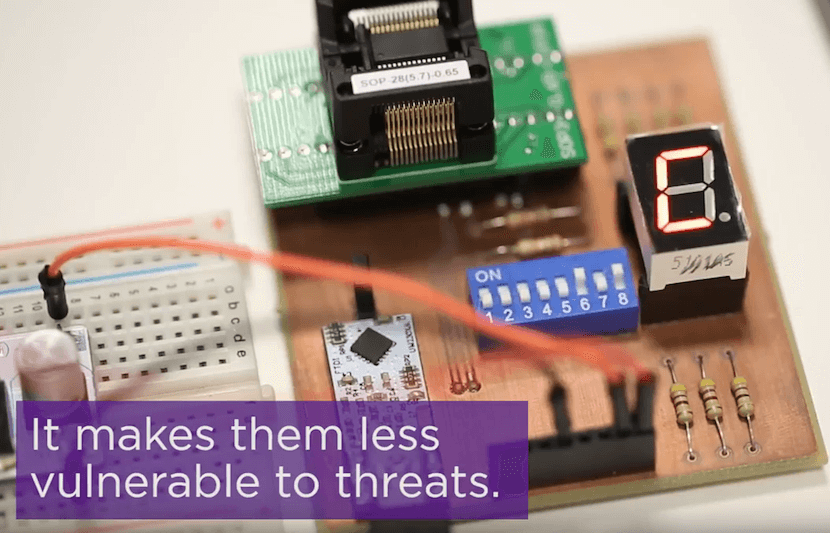Researchers at New York University Abu Dhabi’s (NYUAD) Design for Excellence (Dfx) lab have developed a new unhackable computer chip technology with security features implemented at the hardware level. Chips that are “logic-locked” are not vulnerable to hacking, and cannot be copied.
Cyber security attacks have become rampant over the past 20 years. In the digital age, computer chips are everywhere. They are in phones, cars, medical devices, and airplanes, and are applicable in nearly every industry. Logic-locking technology can be used in any digital chip, so it could potentially make all electronics trustworthy.
To further understand the implications of this revolutionary technology, The University Network spoke with Ozgur Sinanoglu, NYUAD’s Associate Dean of Engineering for Academic Affairs, Associate Professor of Electrical and Computer Engineering, and Head of Dfx.
“This is the first working prototype of a chip that has security features (i.e., locks) implemented as part of its hardware design,” said Sinanoglu.
For the first time, a chip is protected from hardware-level threats.
Until now, technology security methods have only been used at the software or system levels. This is problematic because there is no way to recover or fix software if the hardware is infiltrated, thus making software security methods pointless. This new technology locks the hardware and only permits access to those who know the “secret key.”
“Without the secret key, the chips cannot be made functional,” Sinanoglu said. “Someone who reverse-engineers the chip to obtain the hardware design details to, say, copy/clone it, will not be able to retrieve all the design information as the locks in the design serve obfuscation purposes as well. Depending on the secret key, the chip could be implementing one of billions of different functionalities. The functionality of chip (what it does, how it does it, etc) can only be known if the secret key is known.”
Dfx lab researchers have spent the past seven years searching for a remedy to hardware level threats. They have developed various solutions over the years, but decided to take logic-locking all the way to a proof-of-concept testing due to its simplicity and accessibility.
“For the prototype, we designed a microcontroller chip that mainly consists of an Arm Cortex M0 processor,” Sinanoglu explained. “We received the high level design architecture of the microprocessor from ARM, a UK-based microprocessor design company. We made changes to the design by utilizing our logic locking software to add security features, i.e., locks at the hardware level. We then had the chips manufactured in Singapore facilities of GlobalFoundries by using the 65nm technology node.”
From the technology standpoint, logic-locking is ready to be deployed. Because this technology is so universally applicable, the team will eventually be able to market to any chip design company to develop unhackable chips. The only barrier holding back marketability is the chip design industry’s lack of knowledge surrounding hardware-level threats.
Although these threats are becoming increasingly prominent, many companies are still unaware of their destructiveness. Sinanoglu and his team are striving to increase awareness, but expect earlier adoption in certain industries that are more security-critical, such as defense applications.
“Defense agencies are seriously concerned with hardware-level threats,” Sinanoglu said. “We expect the hardware-level threats to be more pressing in the near future, necessitating most industries, even consumer electronics, to adopt solutions such as ours.”
The full paper containing NYUAD’s Dfx team’s research will be displayed in November at the ACM Conference on Computer and Communications Security.



